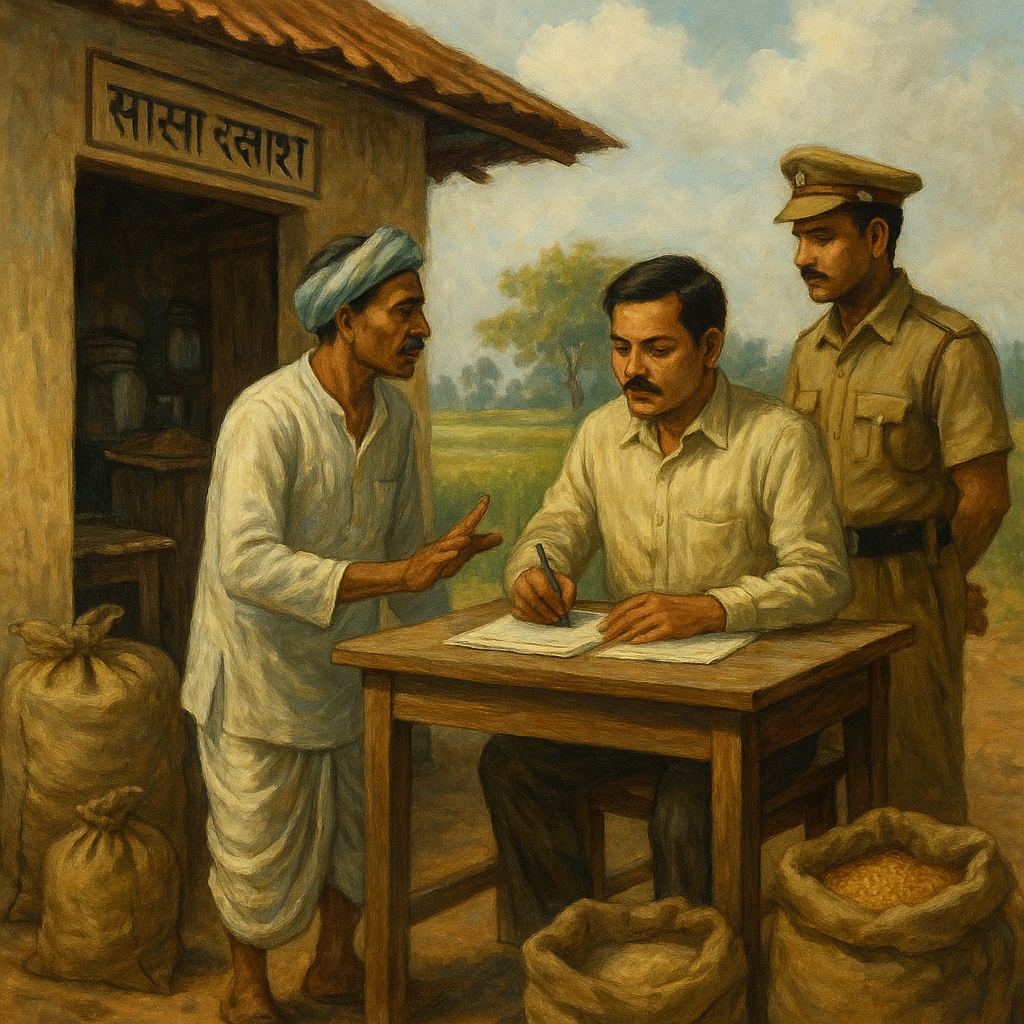Simplified Explanation of the Judgment
The Patna High Court, in an important ruling, quashed the cancellation of a Public Distribution System (PDS) license where the concerned authorities had taken action without following due process of law. The decision underscores that while the State has the power to regulate and penalize PDS dealers, such action must always conform to the principles of natural justice.
The case arose when a PDS license holder from Patna district had his license cancelled by the Sub-Divisional Officer, Patna Sadar, through an order dated 25.01.2020. The ground cited for cancellation was serious: that the licensee had allegedly misappropriated food grains meant for public distribution and diverted them to his brother’s rice mill.
The licensee (petitioner) challenged this order before the High Court, arguing that the cancellation was illegal because he had not been given any opportunity to be heard or to explain his side. According to him, the order violated Rule 27(ii) of the Bihar Targeted Public Distribution System (Control) Order, 2016, which requires notice and hearing before any cancellation.
On the other hand, the State defended the order by claiming that the petitioner had an alternative remedy under Rule 32 of the Control Order, which provides for an appeal. It was argued that the High Court should not interfere under Article 226 of the Constitution since the petitioner could have filed an appeal before the appellate authority. Moreover, the State stressed that the allegations against the petitioner were extremely serious, involving diversion of food grains intended for poor beneficiaries.
The High Court (Hon’ble Mr. Justice Madhuresh Prasad) examined both sides carefully.
- On the issue of alternative remedy:
The Court noted that while the existence of an alternative remedy generally dissuades writ courts from exercising jurisdiction, this is not an absolute bar. The Court has discretion to interfere in exceptional cases, particularly when there is a clear violation of natural justice. The Court recalled settled principles laid down by the Supreme Court, observing that writ jurisdiction may be invoked in four circumstances:- Enforcement of fundamental rights,
- Violation of natural justice,
- Lack of jurisdiction in the authority passing the order,
- When the vires (validity) of an Act is under challenge.
- On the violation of natural justice:
It was admitted by the State that the petitioner had not been issued any show cause notice or granted a hearing before cancellation of his license. This omission was a direct violation of Rule 27(ii) of the 2016 Control Order. Thus, the order was procedurally flawed. - On judicial review:
The Court reminded that judicial review is concerned with the decision-making process, not the merits of the decision itself. Since the decision-making process here ignored mandatory requirements of notice and hearing, it could not stand scrutiny.
In light of these findings, the Court held that the cancellation order was illegal and liable to be set aside.
Court’s Final Decision
- The order of the Sub-Divisional Officer dated 25.01.2020 cancelling the petitioner’s PDS license was quashed.
- The petitioner was entitled to restoration of his license.
- However, the Court clarified that the authorities were free to initiate fresh proceedings against the petitioner, but such proceedings must strictly comply with the law and principles of natural justice.
- The writ petition was allowed.
Significance or Implication of the Judgment
- For PDS dealers: The judgment is a reminder that licenses cannot be cancelled arbitrarily. Even in cases involving serious allegations such as misappropriation of food grains, the dealer must be given a fair opportunity to present his case.
- For the government: The order highlights that strict action against corruption and diversion in the PDS system must go hand-in-hand with adherence to due process. Any short-circuiting of procedure exposes the order to being struck down in court.
- For the general public: The ruling strengthens public confidence in the legal system by showing that even when the allegations are serious, the State must follow lawful procedure. It assures citizens that justice is not only about outcomes but also about fairness in the process.
- For jurisprudence: The judgment reaffirms long-standing principles on the alternative remedy doctrine. It shows that High Courts will not shy away from intervening when there is a gross violation of natural justice, even if a statutory appeal mechanism exists.
Legal Issue(s) Decided and the Court’s Decision
- Whether the writ petition was maintainable despite the existence of an appellate remedy?
- Decision: Yes, because the case involved violation of natural justice, which is an exception to the rule of alternative remedy.
- Whether cancellation of the PDS license without hearing the petitioner was valid?
- Decision: No. The order violated Rule 27(ii) of the Bihar PDS Control Order, 2016, and the principles of natural justice.
- What relief should be granted?
- Decision: The cancellation order was quashed, license restored, but authorities were given liberty to proceed afresh in accordance with law.
Judgments Relied Upon or Cited by Court
- Union of India v. Tantia Construction (P) Ltd., (2011) 5 SCC 697
- M.P. State Agro Industries Development Corporation Ltd. v. Jahan Khan, (2007) 10 SCC 88
- L.K. Verma v. H.M.T. Ltd., (2006) 2 SCC 269
Case Title
Nagendra Prasad Gupta v. The State of Bihar & Ors.
Case Number
Civil Writ Jurisdiction Case No. 8769 of 2020
Citation(s)
2021(2) PLJR 133
Coram and Names of Judges
Hon’ble Mr. Justice Madhuresh Prasad
Names of Advocates and Who They Appeared For
- For Petitioner: Mr. Rajeev Kumar Labh, Advocate
- For Respondents: Mr. Lalit Kishore, Advocate General
Link to Judgment
MTUjODc2OSMyMDIwIzEjTg==—am1–BrTSoEUtrY=
If you found this explanation helpful and wish to stay informed about how legal developments may affect your rights in Bihar, you may consider following Samvida Law Associates for more updates.









